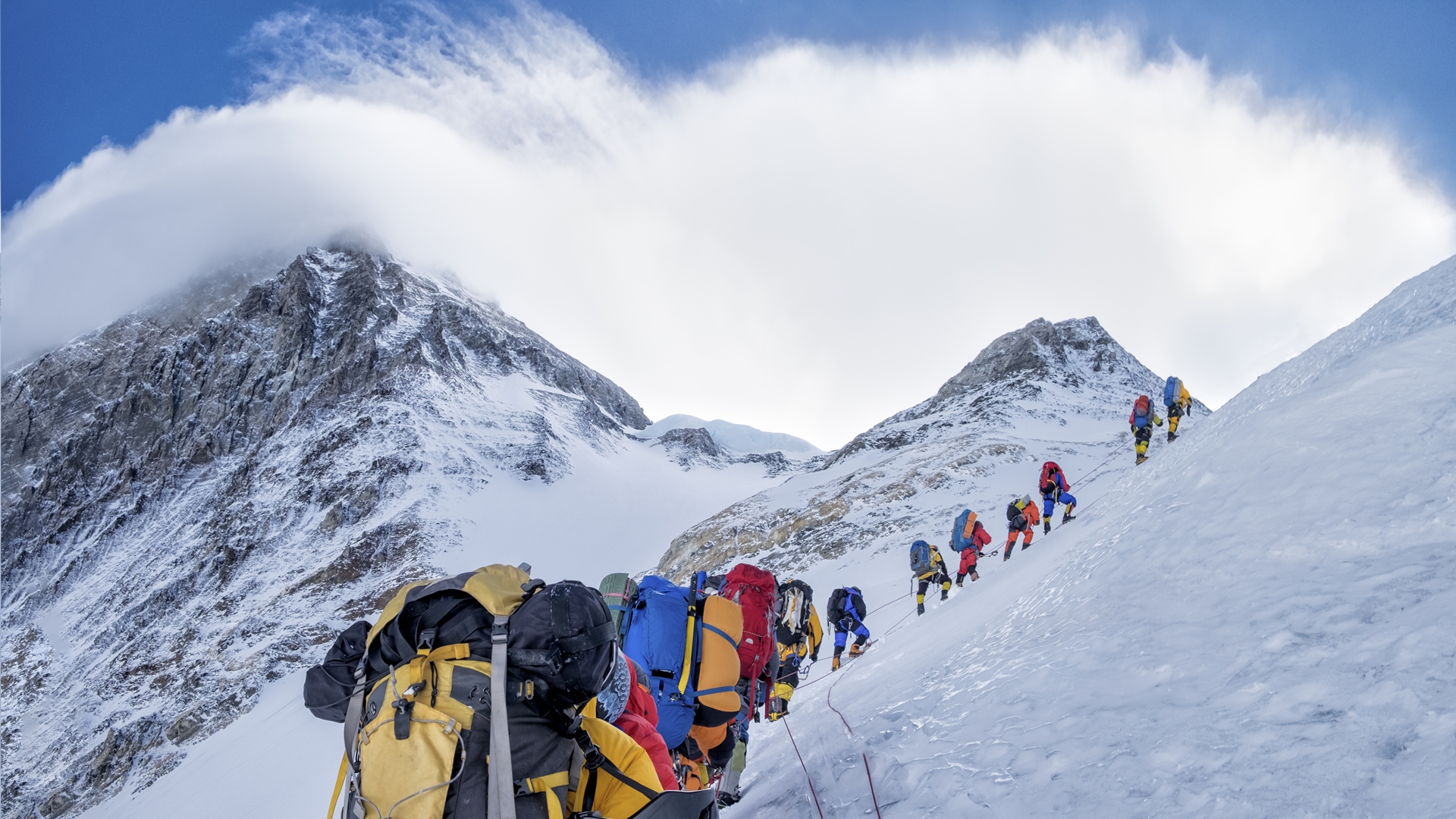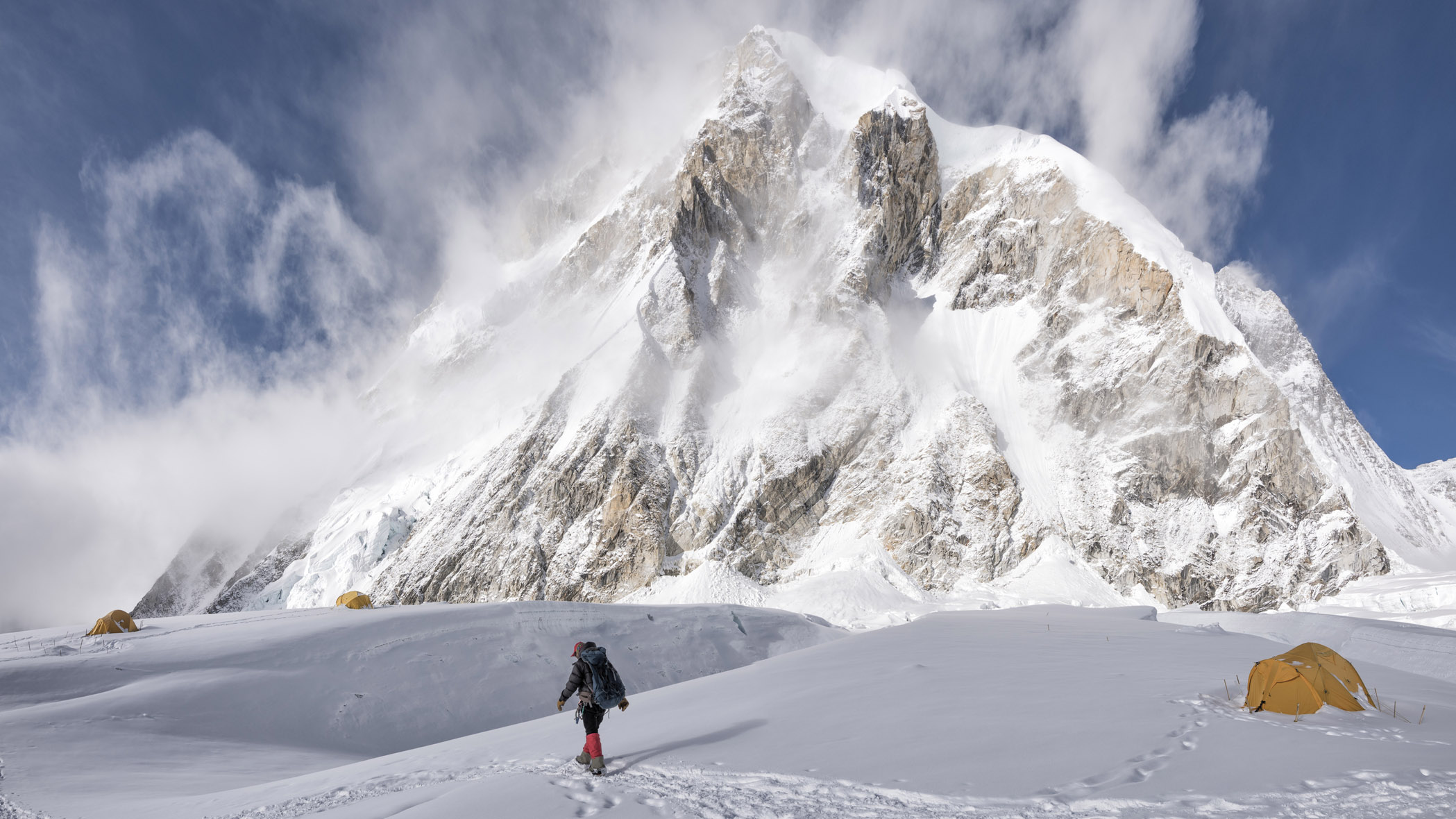
Every mountaineer hoping to scale Mount Everest must now do so wearing a tracking chip, Nepal's government announced this week. The move follows a deadly 2023 climbing season, which saw 18 deaths on the world's tallest mountain, according to the Himalayan database, and comes just days after we reported a major crackdown on facilities like bathrooms and dome tents at Base Camp.
Starting this season, everyone attempting Everest must rent a microchip from the Nepalese government which uses the same GPS technology found in gadgets like your Garmin watch. In an interview with CNN, Rakesh Gurung, director of Nepal’s department of tourism explains that the chip costs each individual approximately $10 - $15 and will be sewn to the inside of their jacket, then removed and returned after their expedition. In the event of an avalanche, injury, or the climber being unable to continue, the chip will allow mountain rescue to more easily locate them.
“It will cut down search and rescue time in the event of an accident," says Gurung, who explains that the practice is already in use among more reputable expedition guiding companies.
Even if you're not planning to climb Everest, if you're heading into the backcountry, climbing a 14er or a higher peak, you can allow your loved ones to track your location using technology that's often built in to GPS watches, such as the LiveTrack feature in Garmin's watches.

As we explain in our article on the world's most dangerous mountain, in a typical year around 800 permits are issued for Everest and one percent of climbers who attempt to summit die. However, last year just 478 climbing permits were issued, but the death rate was nearly four percent.
Though the chip adds a little cost to the price tag of an Everest expedition, it's a mere drop in the bucket compared to the overall bill – an expedition is estimated to cost more than $35,000 and usually takes a couple of months.
In other changes to the Everest experience, we reported last month that Everest climbers will now also have to pack out their poop in an attempt to clean up the mountain after Nepalese officials reported they were "disgusted" by the conditions on the mountain.







